Gulf invests to cut carbon
29 October 2023
 This report on carbon capture also includes:
This report on carbon capture also includes:
> Bright outlook for carbon capture investment
> Oil and gas faces pressing need to decarbonise

In line with national net-zero emissions pledges, and with their carbon-capture targets set, state oil and gas producers in the GCC are pushing projects from the planning phase into execution.
Abu Dhabi National Oil Company (Adnoc) has doubled its target of capturing carbon dioxide (CO2) emissions from its operations to 10 million tonnes a year (t/y) by 2030.
In January, Adnoc Group allocated a budget of $15bn for projects to decarbonise its operations. These schemes will include investments in clean power and carbon capture, utilisation and storage (CCUS).
A key project included in this budget allocation is the Habshan CCUS scheme. In early September, Adnoc achieved financial close on the project, which involves developing a facility at its Habshan gas processing complex in Abu Dhabi that will have the capacity to capture and permanently store 1.5 million t/y of CO2.
The project will be built, operated and maintained by Adnoc Gas and is expected to be commissioned in 2026. Adnoc Gas has awarded UK-headquartered Petrofac the $615m contract for the engineering, procurement and construction (EPC) works on the project.
Adnoc Group is also making progress with other similar CCUS projects, particularly targeting emissions from its onshore field operations and gas processing plants.
Aramco’s CCS drive
Saudi Aramco’s project to develop a large-scale carbon capture and storage infrastructure that will tap CO2 discharge from its gas processing plants is also advancing.
Aramco released the main EPC tender for the first phase of the Accelerated Carbon Capture & Sequestration (ACCS) project earlier in the year.
Aramco has brought on board US oil field services provider SLB and Germany-headquartered Linde as partners for the project’s initial phase. The second-phase partners are US-headquartered Air Products and oil field services provider Baker Hughes.
EPC works on the first phase of the project are expected to take three years, with commercial operation scheduled for 2027. Aramco’s ACCS programme will have nine phases, with total capacity expected to reach 44 million t/y, according to industry sources.
The objective of the ACCS scheme is to capture CO2 from Aramco’s northern gas plants of Wasit, Fadhili and Khursaniyah, as well as from the operations of its subsidiary Saudi Basic Industries Corporation (Sabic) and Saudi industrial gases provider Air Products Qudra.
In addition to Adnoc and Aramco, QatarEnergy, Bahrain’s Bapco Energies and Omani state energy conglomerate OQ are also moving ahead with their respective CCUS projects, which are collectively worth over $2bn, according to data from regional projects tracker MEED Projects.
While national oil companies in the Gulf have invested in CCUS schemes to decarbonise their operations, operators have allocated a significant portion of their spending in the past decade to CO2 recovery facilities.
ALSO READ:
> Bright outlook for carbon capture investment
> Oil and gas faces pressing need to decarbonise
Exclusive from Meed
-
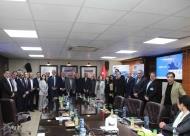 Veolia wins Jordan water services contract
Veolia wins Jordan water services contract18 February 2026
-
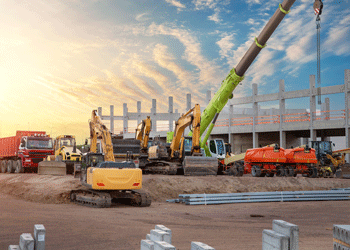 PIF-backed firm signs worker accommodation deal
PIF-backed firm signs worker accommodation deal17 February 2026
-
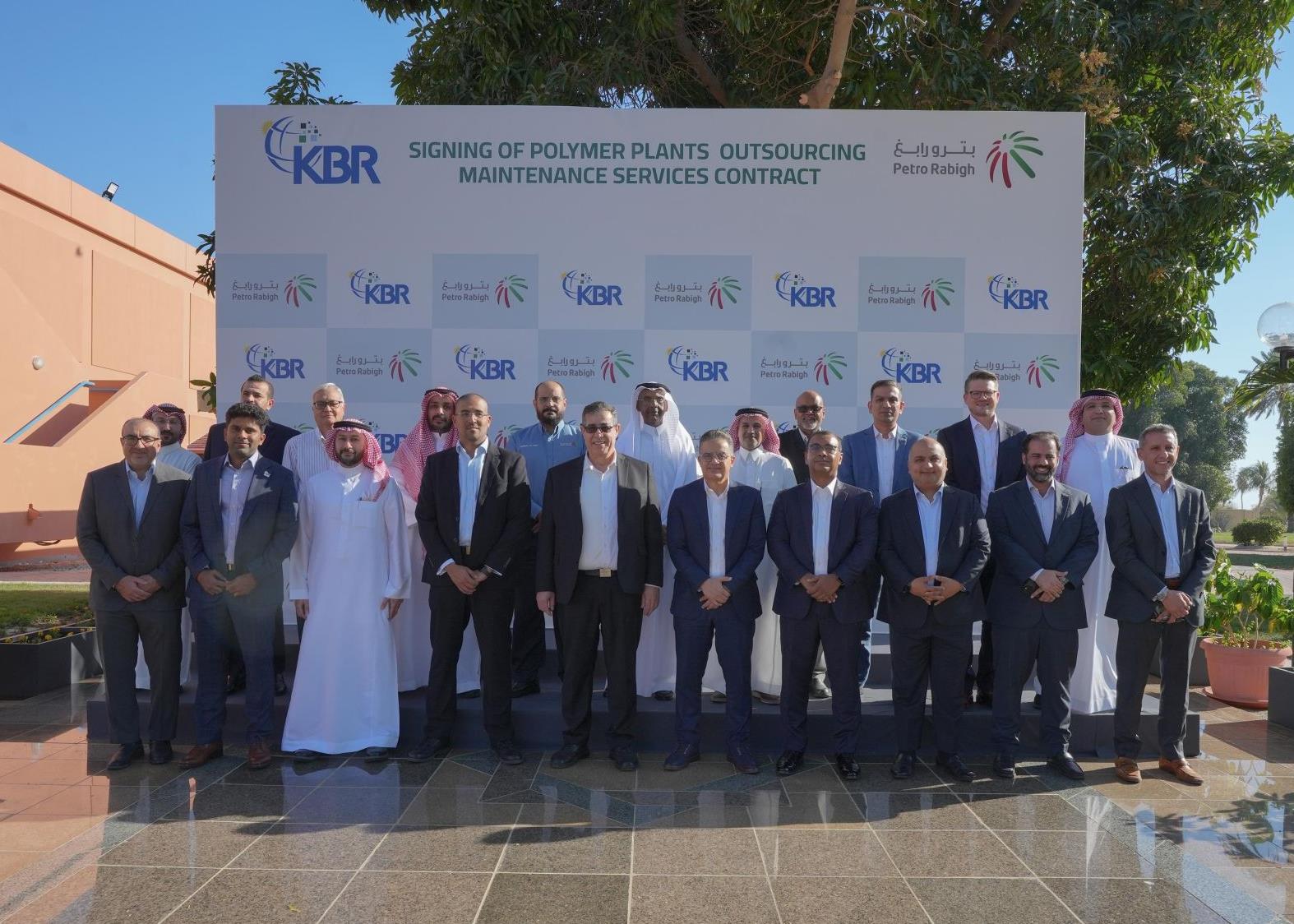 KBR wins 10-year maintenance contract from Petro Rabigh
KBR wins 10-year maintenance contract from Petro Rabigh17 February 2026
-
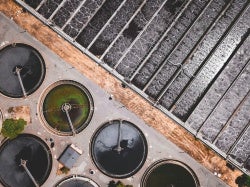 Bidders await NWC decision on sewage contract
Bidders await NWC decision on sewage contract17 February 2026
-
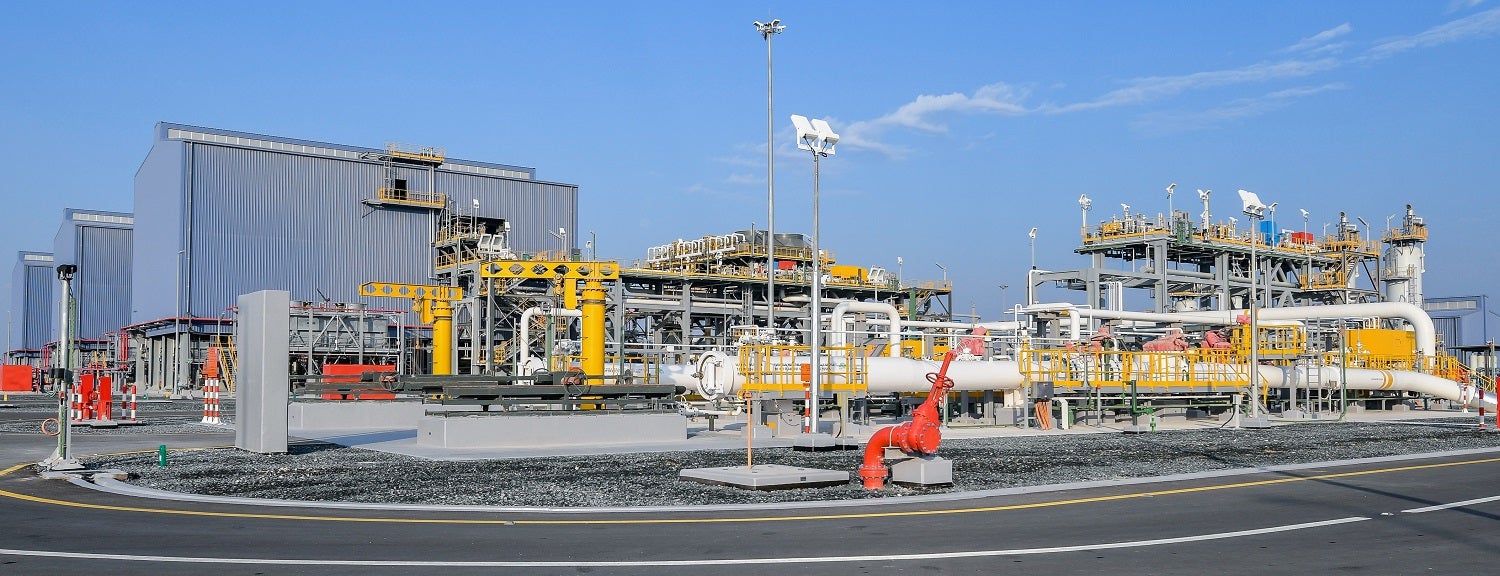 Lamprell wins Dubai’s Margham gas plant expansion contract
Lamprell wins Dubai’s Margham gas plant expansion contract17 February 2026
All of this is only 1% of what MEED.com has to offer
Subscribe now and unlock all the 153,671 articles on MEED.com
- All the latest news, data, and market intelligence across MENA at your fingerprints
- First-hand updates and inside information on projects, clients and competitors that matter to you
- 20 years' archive of information, data, and news for you to access at your convenience
- Strategize to succeed and minimise risks with timely analysis of current and future market trends

Related Articles
-
 Veolia wins Jordan water services contract
Veolia wins Jordan water services contract18 February 2026
Register for MEED’s 14-day trial access
France's Veolia has signed a four-year performance-based management contract with the Water Authority of Jordan to support water and wastewater services in the country’s northern governorates.
Under the contract, Veolia will provide operations, maintenance and management services to Yarmouk Water Company, the public utility responsible for water supply and wastewater services in the region.
The agreement covers Irbid, Jerash, Ajloun and Mafraq, an area spanning nearly 30,000 square kilometres and covering about 3 million people.
The scope includes water and wastewater operations, maintenance, billing and collection, and customer service.
According to the firm, the performance-based structure prioritises measurable improvements, including service delivery, cost efficiency and revenue management.
The company said it will deploy technical and management specialists to support operations, rehabilitation works and investment initiatives.
The contract builds on Veolia’s existing operational role in Jordan’s water sector. The company operates the Disi-Amman scheme, which supplies about 100 million cubic metres of drinking water a year, under an operations and maintenance contract.
It also operates the Al-Samra wastewater treatment plant, which produces about 133 million cubic metres of treated wastewater annually for agricultural reuse.
https://image.digitalinsightresearch.in/uploads/NewsArticle/15684109/main0535.jpg -
 PIF-backed firm signs worker accommodation deal
PIF-backed firm signs worker accommodation deal17 February 2026
Register for MEED’s 14-day trial access
Saudi Arabia's Smart Accommodation for Residential Complexes Company (Sarcc) has signed an agreement with Riyadh-based Mawref Company to develop a 12,000-bed worker accommodation project in North Riyadh.
The project will cover about 120,000 square metres (sq m), with a total built-up area of 150,000 sq m.
The development is expected to cost over SR669m ($178m), with the first phase slated for completion in 2029.
Sarcc is backed by the Public Investment Fund (PIF), the Saudi sovereign wealth vehicle.
The agreement follows Sarcc signing another agreement in September last year with privately-owned local firm Tamimi Global Company to explore collaboration in developing worker accommodation facilities in the kingdom.
The PIF launched Sarcc in October 2024 with the aim of developing and operating staff housing and accommodation assets in the kingdom.
Sarcc will develop and operate the staff accommodation facilities at major construction projects in Saudi Arabia.
The company will seek opportunities to invest in the sector to strengthen staff housing standards. Sarcc will also look to engage the private sector by enabling investment and partnership opportunities in sectors including construction, catering, transportation and retail.
https://image.digitalinsightresearch.in/uploads/NewsArticle/15672262/main.gif -
 KBR wins 10-year maintenance contract from Petro Rabigh
KBR wins 10-year maintenance contract from Petro Rabigh17 February 2026
Register for MEED’s 14-day trial access
Saudi Arabia's Rabigh Refining & Petrochemical Company (Petro Rabigh) has awarded US-based consultant KBR a 10-year contract to provide maintenance services covering the company’s polymer plants in Rabigh, on the kingdom’s Red Sea coast.
“This [contract award] marks a major step in Petro Rabigh’s transformation journey, supporting safer operations, stronger reliability and long-term improvement across its facilities,” Petro Rabigh said in , without providing further details.
Work on the operations and maintenance contract will be executed by KBR’s business line, which operates under the Houston-headquartered firm’s Technology Solutions portfolio, sources told MEED.
Prior to this contract, in March 2024, Petro Rabigh awarded KBR a similar five-year asset condition monitoring programme contract. As part of that job, KBR is to provide predictive maintenance services at Petro Rabigh’s main plant.
Petro Rabigh was originally established in 1989 as a basic topping refinery with crude oil processing facilities, located in Rabigh, 165 kilometres to the north of Jeddah in Mecca Province.
Saudi Aramco and Japan’s Sumitomo Chemical Company formed an equal joint venture in 2005 to transform the Petro Rabigh crude oil refining complex into an integrated refinery and petrochemicals complex, with the strategic objective of expanding Saudi Arabia’s annual production capacity of refined products and petrochemicals.
Three years after the creation of the Petro Rabigh joint venture, the partners floated 25% of its shares in an initial public offering on the Saudi Stock Exchange (Tadawul) in 2008, following which Aramco and Sumitomo Chemical each held 37.5% shares in Petro Rabigh, with the remaining shares listing on the Tadawul.
In October last year, however, Aramco completed the acquisition of an additional 22.5% stake in Petro Rabigh from Sumitomo Chemical. Following the completion of the transaction, valued at $702m or SR7 a share, Aramco became the majority shareholder in Petro Rabigh, with an equity stake of 60%, while Sumitomo retains an interest of 15%. The remaining 25% shares of Petro Rabigh continue to trade on the Tadawul.
ALSO READ: Petro Rabigh and Indian firm to study joint project investment
Following the formation of the Petro Rabigh joint venture in 2005, Aramco and Sumitomo Chemical launched the expansion of the refining facility into an integrated refining and petrochemicals complex in 2006, investing $9.8bn in the project, 60% of which was secured through external financing. Engineering, procurement and construction works on phase one were completed in 2009, with the integrated downstream complex entering operations in November of that year.
The Petro Rabigh downstream complex consists of a topping refinery that has a 340,000 barrel-a-day (b/d) crude distillation unit, a 47,000 b/d hydrotreater, a 12 million cubic-feet-a-day hydrogen plant, a 75,000 b/d naphtha merox unit and a 60,000 b/d kerosene merox unit, along with supporting utilities, product tankage and a marine terminal.
Aramco and Sumitomo Chemical initiated Petro Rabigh’s phase two expansion project, valued at $8bn, in 2014. The second expansion phase was commissioned in 2018 and added 15 chemicals plants to the Petro Rabigh complex, raising the facility’s total production capacity to 18.4 million tonnes a year (t/y) of petroleum-based products.
The expansion also increased Petro Rabigh’s capacity to process an additional 30 million cubic feet a year of ethane into 2.4 million t/y of ethylene and propylene-based derivatives, and achieved a naphtha output of 3 million t/y.
Expansion of the main existing chemicals plant and the establishment of a clean fuels complex comprising polyether polyols, naphtha treating and sulphur recovery units were also part of the phase two project.
Photo credit: Petro Rabigh on LinkedIn
https://image.digitalinsightresearch.in/uploads/NewsArticle/15670196/main5008.jpg -
 Bidders await NWC decision on sewage contract
Bidders await NWC decision on sewage contract17 February 2026

Saudi Arabia’s National Water Company (NWC) is evaluating five bids for package 12 of its long-term operations and maintenance (LTOM12) sewage treatment programme.
Known as the North Western B Cluster, LTOM12 forms part of the second phase of NWC’s rehabilitation of sewage treatment plants programme.
The contract covers the construction and upgrade of seven sewage treatment plants with a combined capacity of about 162,000 cubic metres a day (cm/d).
As MEED understands, the companies that have submitted proposals include:
- Alkhorayef Water & Power Technologies (Saudi Arabia)
- Civil Works Company (Saudi Arabia)
- Miahona (Saudi Arabia)
- Beijing Enterprises Water Group – BEWG (Hong Kong)
- Al-Yamama (Saudi Arabia)
Earlier this month, MEED exclusively reported that six contractors are competing for the North Western A Cluster Sewage Treatment Plants Package 11 (LTOM11), which has an estimated value of about $211m.
The project involves the construction and upgrade of two sewage treatment plants with a combined capacity of about 440,000 cm/d.
The scheme is being procured on an engineering, procurement and construction (EPC) basis with a long-term operations component.
It is understood that contracts for LTOM11 and LTOM12 will be awarded in May.
In January, a consortium of United Water (China), Prosus Energy (UAE) and Armada Holding (Saudi Arabia) won the main contract for the Northern Cluster Sewage Treatment Plants Package 10 (LTOM10).
This contract was the first to be awarded under the second phase of NWC’s rehabilitation of sewage treatment plants programme.
NWC previously awarded $2.7bn-worth of contracts for the first phase of its LTOM programme. This comprises nine packages covering the treatment of 4.6 million cm/d of sewage water for the next 15 years.
https://image.digitalinsightresearch.in/uploads/NewsArticle/15670141/main.jpg -
 Lamprell wins Dubai’s Margham gas plant expansion contract
Lamprell wins Dubai’s Margham gas plant expansion contract17 February 2026
Register for MEED’s 14-day trial access
Dubai Petroleum has awarded Lamprell a contract for a project covering the expansion of the Margham gas storage and processing facility, which is operated by state-owned Dubai Supply Authority (Dusup).
Lamprell’s scope of work on the contract includes engineering, procurement and construction (EPC) of civil works, pipe rack structures and associated infrastructure installation. Work on the contract will be delivered by Lamprell’s onshore division.
The contract awarded to Lamprell by Dubai government-owned Dubai Petroleum forms part of a wider project known as the Sunrise development programme. The aim of the scheme is “to support future capacity enhancements required to meet projected gas demand and the integration of renewable energy sources for end users across the [UAE],” Lamprell said in a statement.
Lamprell is primarily a contractor and services provider in the offshore oil and gas and wind energy sectors, with its main clients including Saudi Aramco, Abu Dhabi National Oil Company (Adnoc) and QatarEnergy. The company has operational bases in Dammam and Ras Al-Khair in Saudi Arabia, while its bases in the UAE are in Hamriyah in Sharjah and Jebeli Ali Free Zone in Dubai.
The company was previously listed on the London Stock Exchange, from where it delisted following a takeover offer from a consortium of Blofeld Investment Management and AlGihaz Holding for its Saudi Arabia business in 2022. AlGihaz Holding later took full ownership of Lamprell.
“Expanding our onshore EPC capability is a key pillar of Lamprell’s strategy, and this award directly supports that objective,” Ian Prescott, Lamprell’s CEO, said.
“We appreciate the confidence [Dubai Petroleum] has placed in Lamprell and look forward to working with our long-standing, valued client. Delivering critical energy infrastructure in the UAE strengthens our onshore portfolio, demonstrates local execution capability and positions the business for further growth in this market,” Prescott said.
The Margham gas field and associated processing plant are located on the Dubai-Hatta road. It is the largest gas field onshore Dubai. The field contains three gas-bearing geological formations more than 10,000 feet below the surface.
The Margham field came online in 1984 and has been developed with production and injection gas wells that are connected through a gathering system to the processing plant.
Initially, the gas was processed to remove water for disposal and condensate for sale and the dry gas was reinjected into the reservoir. At present, the dry gas is sent by pipeline to the Dubai gas grid.
The gas plant separates the heavier hydrocarbons components and formation water from the gas through a series of cooling, pressure reduction and phase separation steps.
The remaining gas stream, substantially free of liquid components, can be either flowed directly to the Dubai gas grid or compressed to a higher pressure if required.
The raw condensate is brought to product specification by further removal of water and stabilised by distillation. The stabilised condensate is moved by pipeline to Dubai’s main crude oil refinery at Jebel Ali.
The Margham field has functioned as a strategic gas storage facility for Dubai since 2008, with the ability to inject gas into the reservoir or produce gas to meet Dubai’s seasonal fuel gas requirements.
https://image.digitalinsightresearch.in/uploads/NewsArticle/15669884/main.jpg


